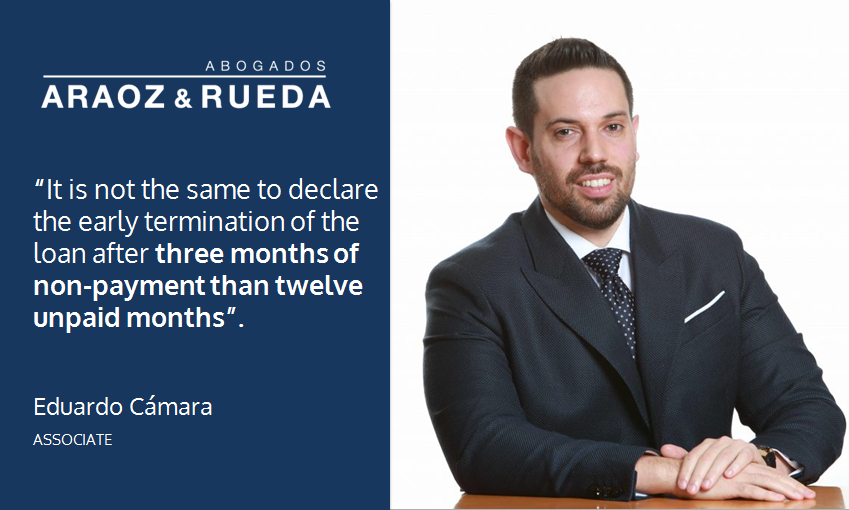In principle, it may be believed that the new early termination legal regime provided for in Law 5/2019 of 15 March, regulating real estate credit agreements (“Ley de Contratos del Crédito Inmobiliario” or “LCCI”) could have a major impact on the sale of real estate portfolios and non-performing loans (“NPLs”).
Indeed, with the new early termination legal framework introduced by the Spanish legislator, financial entities will not be able to enforce mortgages and start eviction proceedings until debtors accumulate at least 12 months of default or an equivalent of 3% of the capital granted (within the first half of the term of the loan), and 15 months or 7% of the capital (as from the second half of the term of the loan).
It should be noted that prior to the LCCI, banks were allowed to initiate foreclosures as soon as three months of defaults were accumulated, although in practice they did not start the enforcement proceedings until six to eight months of defaults had elapsed.
Therefore, although it is always complicated to predict how the real estate market will behave under the new legislation, it is clear that there has been a huge legislative change in the area of early termination with the possibility of initiating foreclosure proceedings and the consequent disposal of the collateral. It is not the same to declare the early termination of the loan after three months of non-payment than twelve unpaid months.
It would not be unreasonable to believe that the extension of deadlines for foreclosures could lead financial entities, in practice, to tighten conditions in the market for sales of real estate and NPL portfolios, as this market is essential for banks in order to remove from their balance sheets billions of euros in impaired assets.
Obviously, it is not the same to sell a portfolio of secured NPLs if the legal regime allows a foreclosure after three months, than if it is necessary to wait a minimum of twelve months. In theory, in market practice, this could mean that funds and other entities specialized in acquiring and managing these types of assets, will try to demand greater discounts on prices to be paid to the selling financial institutions, either for their portfolios of mortgage loans, or for their real estate.
However, we do not believe that there will be large variations in prices, mainly for three reasons:
- the greater legal certainty existing after the entry into force of the LCCI (and after the latest rulings on the matter by the European Court of Justice and our Spanish Supreme Court),
- fierce competition in the market between funds and other companies specialized in the acquisition of NPL portfolios and
- because in practice, when NPL sales and purchases take place, the credits usually have not been paid for several months.
Thus, and despite the entry into force of the new LCCI, we conclude that the market for the sales and purchases of NPLs will continue successfully and at a good pace in the forthcoming years. Regardless that foreclosure proceedings are long and costly in Spain, these types of transactions will continue to be worthwhile for investors specialized in these types of assets as the large discounts on prices mean that these transactions are very attractive and highly profitable in the long term.
Eduardo Cámara
Associate





